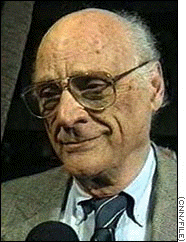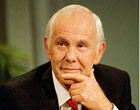Great article from November’s Wired Magazine that Jeremy Fogel just sent my way. We actually have a General Electric stove with the Shabbat setting. The first time I saw such a thing was at Rabbi Danny & Lynn Nevins’s home a number of years ago on Shabbat.
Danny and I both delighted in the fact that Sabbath observant Jews seemed to “have arrived” as far as GE was concerned, but we were dismayed that the user’s manual stated that the Sabbath function was “for Orthodox Jews who do not cook on the Sabbath” similar to the statement in the second paragraph of the article below. Should I be upset at the snub of non-Orthodox Jews observant of Halakhah like myself or, rather, should I only wish that it were true that only Orthodox Jews were forbidden from all the melachot of Shabbat?
The Geek Guide to Kosher Machines
By Michael Erard
Wired Magazine
Jonah Ottensoser leans over the white stovetop to tweak its settings, giving me a full view of the black yarmulke on his head. But he’s not about to bake a cake. Ottensoser, a large genial man with a gray beard, is an engineer, not a cook, and he’s brought me to the kitchen in his Baltimore office to show off his proud creation: a stove that Jewish consumers will buy just to please God.
From sundown Friday to sundown Saturday, Orthodox Jews are forbidden to work, write, and drive. In all, 39 activities are off-limits to those complying with the Torah’s fourth commandment, to keep the Sabbath holy. In the home, that means no cooking or fire lighting – or its modern analog, moving electricity through a circuit.
For decades, observant Jews have found ways to work around Sabbath restrictions in the kitchen. They taped down the button on the refrigerator door frame to keep the light from turning on. Or someone unscrewed the bulb before Friday sunset. They turned on an oven in advance – that way, they could warm food on the Sabbath without altering temperature settings. In recent years, however, well-intentioned appliance makers have been installing safety features that automatically shut off ovens after 12 hours. That meant a unit turned on at dusk Friday would be cold before lunch on Saturday. When companies learned this was complicating dinner preparation for some Jews, they supplied an optional override. Thus, a rudimentary “Sabbath mode” was born.
But as appliances got more high tech – gel-pad touch controls; LED screens with temperature and burner settings; digital humidity gauges – creating a Sabbath mode became more difficult. Mayer Preger, a salesman at the Manhattan Center for Kitchen and Bath, noticed a problem when fridges started using sensors instead of simple light switches. “You can’t hack the new refrigerators like you used to,” he complains. “There’s all these computer chips in them.”
That’s where Jonah Ottensoser comes in. He doesn’t hack the fridges so much as work with manufacturers to give appliances a kosher seal of approval. A retired helicopter engineer who is himself Orthodox, Ottensoser teaches Sabbath law to technical teams at companies like General Electric, Electrolux, and Viking. His job: to guide them in building electronic brains and mechanical guts that are Sabbath-compliant.
Ottensoser works for Star-K, a nonprofit that certifies food products as kosher. Of several hundred kosher agencies in the world, Star-K is the only one that certifies technology, and Ottensoser is the firm’s only appliance consultant. That makes him the world’s lone kosher geek, the man tasked with certifying that the movement of every electron in an appliance is sanctioned by God.
Since he was hired seven years ago, Ottensoser has helped nine companies design Sabbath modes for more than 300 types of ovens and stoves, and dozens of refrigerators. When the feature is enabled, lights stay off and displays are blank; tones are silenced, fans stilled, compressors slowed. In a kosher fridge, there’s no light, no automatic icemaker, no cold-water dispenser, no warning alarm for spoiled food, no temperature readout. Basically, Ottensoser converts your fancy – and expensive – appliance into the one your grandma bought after World War II.
One of the hardest parts of Ottensoser’s job is explaining to engineers the intricacies of Jewish law. He starts by focusing on the concept of indirect action. Sabbath law prohibits Jews from performing actions that cause a direct reaction; that would qualify as forbidden work. But indirect reactions are, well, kosher. In Hebrew, this concept is called the gramma. There are two types of grammas, Ottensoser tells me. Say you hit a light switch, but it doesn’t come on immediately – that’s a time delay, a time gramma. There’s also a gramma of mechanical indirectness, like a Rube Goldberg contraption in which a mouse turns a wheel that swings a hammer that turns a key that launches a rocket. You can’t claim the mouse actually launches the rocket.
Ottensoser gets manufacturers to build the easier time gramma into their products. Rabbis differ on how much of a delay is required; the Star-K rabbinical authority, Moshe Heinemann, authorizes a 5-second lag. To be on the safe side, Ottensoser increased the delay to 15 seconds and a random wait of as much as 10 seconds. Why? “An indirect action is one where you can’t predict what’s going to happen,” he says.
He explains it to engineers with the following example: Opening a fridge seems like a harmless action without consequence. But every time you open that door, you let warm air in and cold air out, changing the temperature inside. So the compressor switches on to compensate, and you’ve effectively turned on the appliance and engaged in work. Mechalel shabbos – you’ve desecrated the Sabbath. For a while, observant Jews tried a mechanical solution, putting their fridges on a timer. “But it killed the refrigerators,” says Ottensoser.
Engineers at GE faced another problem: Their freezers have an auto defrost mode that switches on after the door has been opened a set number of times. That results in a direct reaction – mechalel. Ottensoser suggested that the engineers rework the controls to trick the refrigerators into emulating a model from the 1990s, when defrost modes were on a predetermined cycle. “There was no easy workaround,” says Valinda Wagner, a product manager at GE. “We had to redesign the control algorithms.”
With 900,000 Orthodox Jewish households in the US and millions overseas, offering the Sabbath mode makes good business sense. It’s also part of a trend among tech companies, who are acknowledging cultural and religious values to tap emerging markets overseas and become more competitive in niche markets at home. GE offers a five-burner stovetop popular with Hispanics, who use the extra burner to warm tortillas. And Intel’s smart home team has put ethnographers into Asian kitchens to look at technology use.
Aside from the coffeemaker, Ottensoser rarely uses kitchen appliances at home, where he leaves the cooking to his wife. “I’m kinda macho that way,” he says. But not too macho to trade in a career building helicopters for fixing kitchen appliances. “From a technical viewpoint, there’s not much difference,” he shrugs. “Electricity is electricity, and mechanics are mechanics.”
But back in the Star-K staff kitchen, where Ottensoser is demonstrating the Sabbath mode on a Kenmore stove, things aren’t so simple. Holding a page of instructions, he pushes button after button and mutters to himself, “OK, so I hit this.” Nothing. “OK.”
Consumers who have bought high-end appliances in the last few years should be relieved by Ottensoser’s difficulty in activating Sabbath mode, even though many modern ovens come with this feature. The functionality is buried in the appliance, well hidden behind a choreography of button-pushing. That means you’re not likely to accidentally trigger it – and have to call for repair service when the oven light won’t come on.
Finally, Ottensoser hits the right buttons on the Kenmore, and the LED display reads “SABT.” Now it’s a kosher oven. I ask if he has a Sabbath mode oven at home. “Three of them,” he says. How about a Sabbath fridge? He scoffs. Who wants a fridge so high tech that it requires a Sabbath mode? “They’re too fancy. Why do I need to know what the temperature is inside my refrigerator? Why do I need a light in my crisper?”
(c) Rabbi Jason Miller | http://blog.rabbijason.com | Twitter: @RabbiJason | facebook.com/rabbijasonmiller


